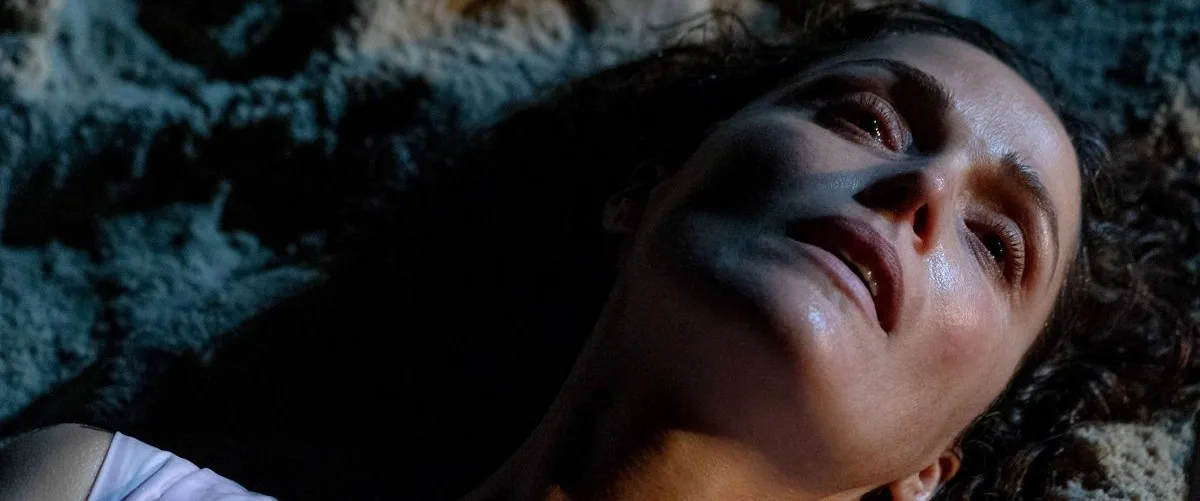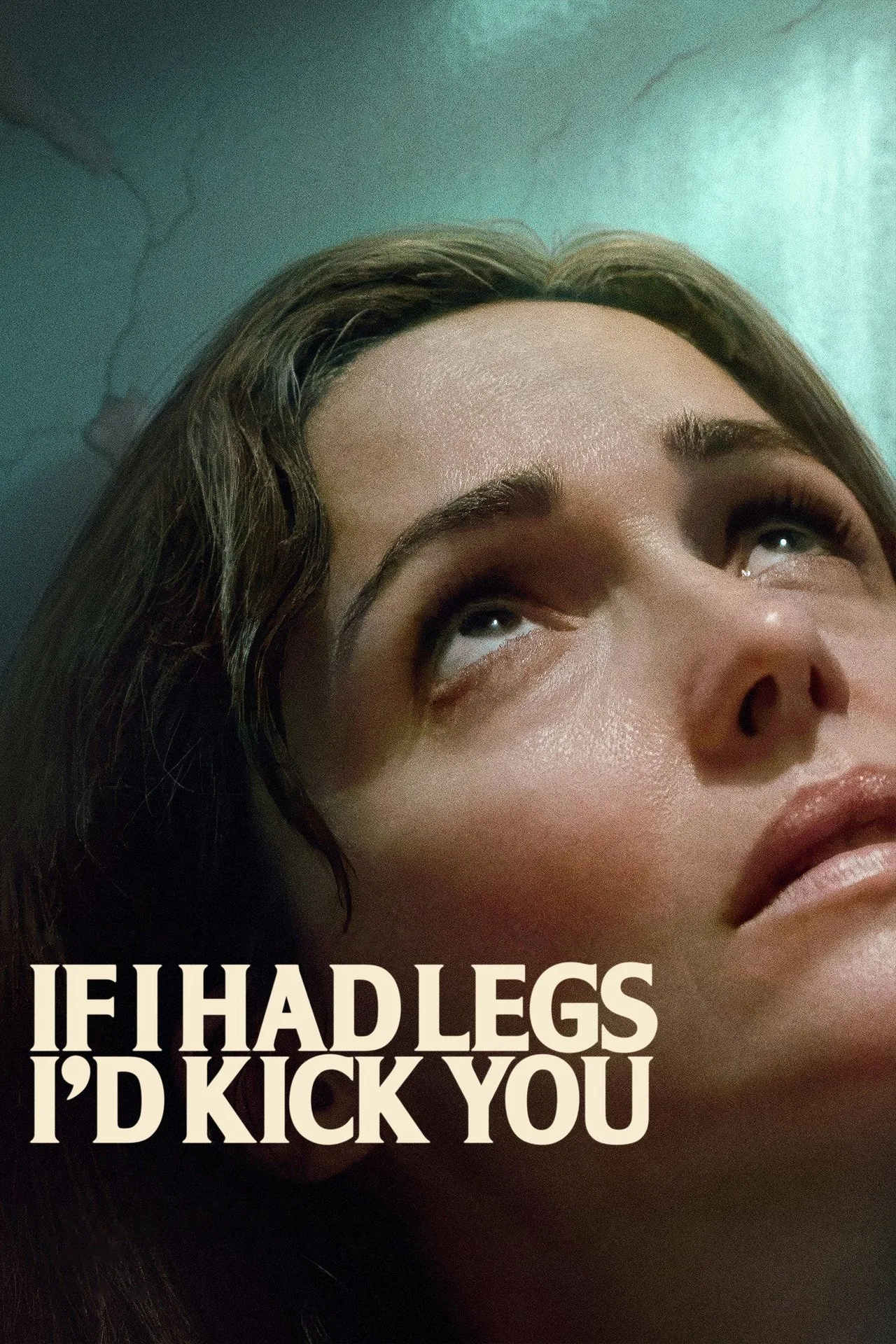Mary Bronstein’s “If I Had Legs I’d Kick You” is about the unraveling, the unbecoming of Linda, a wry, worn-down mother and therapist played magnificently and unflinchingly by Rose Byrne. Like popping a pimple too soon, leaving it oozing and throbbing, a red gash for the world to see that you clearly lack self-control, Linda seriously struggles to juggle the mysterious illness of her daughter and the sudden collapse of her literal and metaphorical ceiling, leaving her with no pillars to support her.
And yet, Linda repeatedly professes the phrase “I need to be alone” as she lies on her therapist’s couch. Her therapist and office mate, played with perfectly off-putting flair by Conan O’Brien, offers little support and later abandons her. Her husband (Christian Slater), who’s away for work, calls constantly to nag about how she’s not doing enough to heal their daughter or fix their apartment. With these two relationships in particular, Bronstein anchors and reinforces the vastly different ways men and women approach solving logistical problems and navigating intricate, emotional situations. “Can you hear me?!” Linda screams at both men, who evidently were in fact not truly listening to the multi-layered mess that she is trying to clean up. The daughter’s doctor preaches to parents that “It’s not your fault,” as she simultaneously threatens to remove Linda’s child from the treatment program if she does not start to improve. Can you also feel the elephant on your chest and the knot in your throat?
After a long day of battling big and small nuisances, Linda escapes for a walk with a bottle of wine, her marijuana one-hitter, and awkward encounters with her hotel neighbor, James (A$AP Rocky). Although we never quite learn much about James, his comedic relief and consistent positive presence, for a moment, make it seem like he could be the light to guide Linda back from the dark hole into which she’s descending. Unfortunately, yet unsurprisingly, she manages to hurt James. To complement the downfall of her personal life, her ability to thoughtfully and considerately therapize her patients dwindles. During one of her sessions with an anxious new mother (Danielle Macdonald), the patient literally runs away, leaving her baby with Linda. Despite the distress this initially adds to Linda’s ever-growing list of responsibilities, it evolves into a foreshadowing mirror. Of course, our collective, immediate reaction to the new mother’s rash decision is similar to Linda’s, concerned and shocked by the audacity. However, when we see the experience reiterated in Linda’s life, it highlights a possible universal pattern that begs the audience to pay more attention to how we reciprocate support and nourishment, particularly for maternal figures. The film showcases almost every conflict, but strategically, Bronstein never shows the face of Linda’s child until the final scene. The choice highlights the impact Linda’s daughter is having on her life instead of blaming the actual child.
Throughout the film, a pulsating, haunting score unsettles our cardiac and respiratory rhythm. This personification of panic unnerves the rest of our senses; even if we were to look away, we feel and know in our body that things are not right. The film visually explores the dark, gaping hole in Linda’s apartment ceiling; it haunts her in her dreams, symbolizing the dreadful parts of herself that she must reckon with. Her hours of being unbothered, late into the night or early in the morning, are for the true, raw self: attempting meditative breathing exercises, silently screaming into pillows, ruminating on every embarrassing or questionable thing said or done. This exploration of the unfiltered self leads us to the deepest crevices. Just like in astrophysics, it’s unclear where this black hole will lead us, or if we will ever be able to come back.
It’s been difficult to move past how this movie made me feel: disgusted, guilty, concerned, compassionate, and uncertain. I relate it to other “Mom’s Gone Crazy” films like Marielle Heller’s recent “Nightbitch” (2024), Jason Reitman’s “Tully” (2018), or Darren Aronofsky’s “mother!” (2017). On social media, we see constant confessionals from women and mothers about the unbearable load they bear. It’s not news that these figures are somehow superhuman; it’s uncomfortable and quite gruesome to confront the fact that we are complicit in causing the crumbling of a loved one’s sanity, specifically the one who brought us into this world.
When Bronstein introduced “If I Had Legs I’d Kick You” to its Telluride audience, she posed two questions: “What’s the worst thing that’s ever happened to you?” and “What’s the worst thing that happened to you today?” A caged warning for what we were about to experience. By no means does Bronstein believe this film will resonate with all audiences. And while “If I Had Legs I’d Kick You” may not be something I revisit, that does not detract from its excellent, exhausting execution.
This review was filed from the premiere at the Telluride Film Festival on September 2.




















